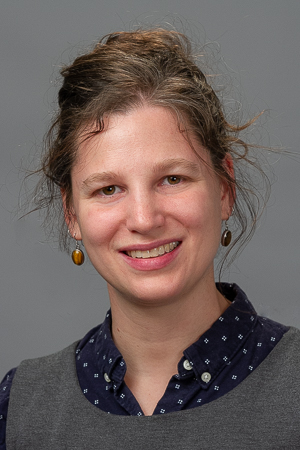Faculty Profile
Hanna Roman
Associate Professor of French (2018)Contact Information
Bosler Hall
--
Bio
Hanna Roman came to Dickinson College in 2018. She received her doctorate in French Literature from the Johns Hopkins University in 2013 and has held faculty positions at Vanderbilt University and the University of Hawai’i, Mānoa, in Honolulu. Her recent book, "The Language of Nature in Buffon’s Histoire naturelle" (Oxford University Studies in the Enlightenment/Voltaire Foundation, October 2018) examines the relationship between language and the natural sciences during the French Enlightenment. Professor Roman's current research focuses on the influences of religious and mythological discourses on the scientific disciplines of geology, geography, and natural history in the French Enlightenment. Her teaching and research ask how the past and present of the Earth —and the impact of human activity upon it— were studied in the eighteenth century and how these ways of thinking continue to influence environmental thought today.
Education
- B.A., Grinnell College, 2006
- Ph.D., Johns Hopkins University, 2013
